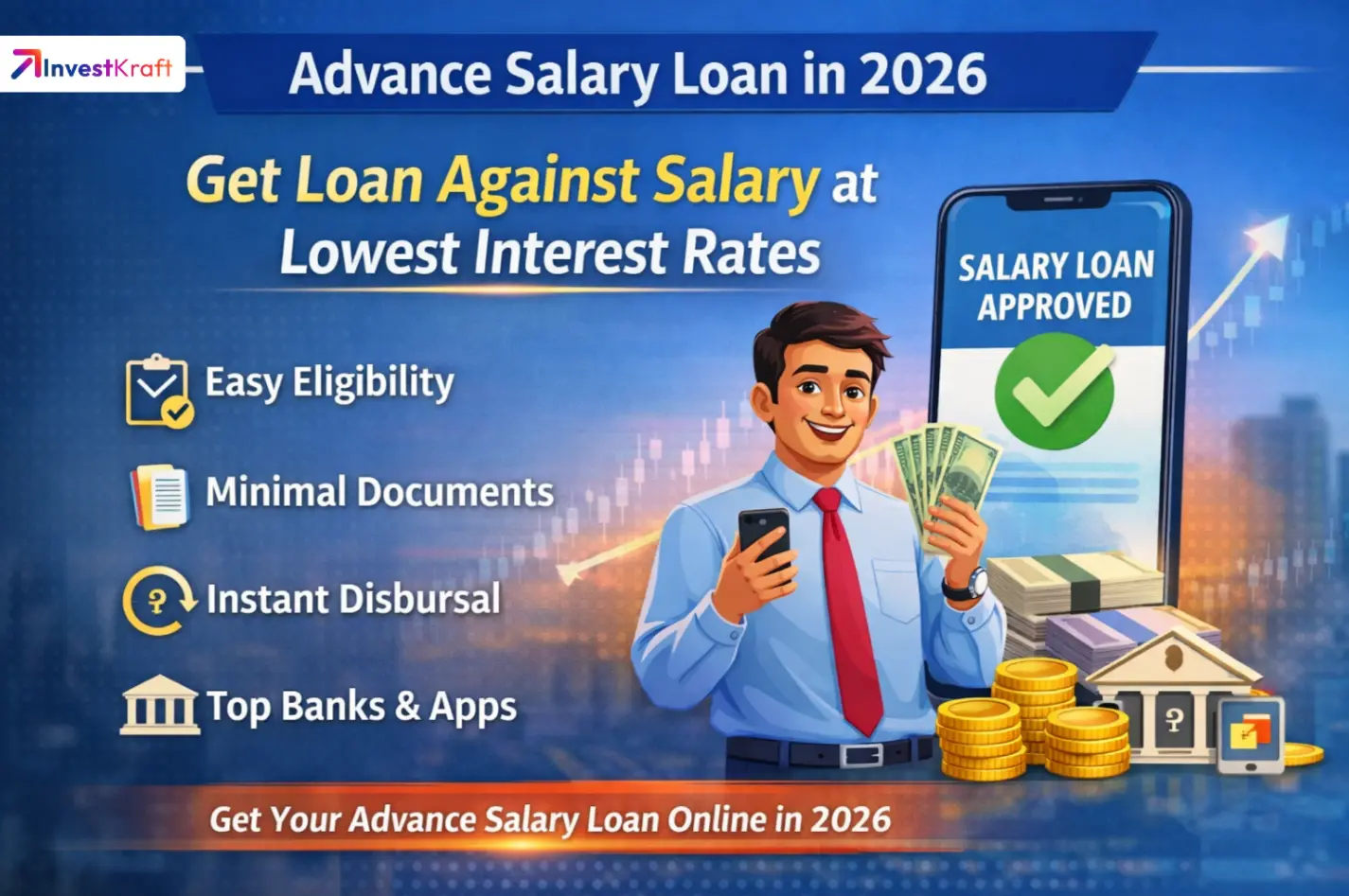
Everybody needs a personal loan at some point. Some people need it for emergencies. Some need it for shopping, travel, or weddings. Others use it to manage monthly expenses. But here is the real question.
The loan amount is not random. It depends on many clear factors. In this blog, you will learn:
Read till the end. It will help you make a smarter loan decision.
You need to meet these basic eligibility criteria to be even considered for a personal loan by banks and NBFCs in India:
Meeting these basics makes you eligible. But eligibility alone does not decide the loan amount.
Banks do not randomly decide your personal loan amount. Each bank has a different lending policy. However, these are the most important factors:
| Factors | Affect on Loan Amount |
| Monthly Salary | Most important factor. A higher salary means higher repayment capacity. Usually 10-24 times your monthly in-hand salary. |
| Existing Loans and EMIs | Existing EMIs are considered liabilities. Your loan amount reduces. Acceptable FOIR* is 40%-55%, depending on your income. |
| Credit Score and Credit History | A higher credit score increases the loan amount. |
| Employer | Working for a reputed brand builds trust, which increases your loan amount |
| Job Stability | Longer job stability builds confidence for lenders |
| City of Residence | Metro city applicants often get higher amounts. Non-metro limits may be slightly lower. |
*Fixed Obligation to Income Ratio (FOIR): FOIR shows how much of your monthly income is already committed to EMIs.
FOIR = Total monthly EMIs ÷ Monthly income.
Most banks allow a FOIR of 40% to 55%, depending on your income level and credit profile.
For example, if your monthly income is ₹50,000 and your existing EMIs are ₹15,000, your FOIR is 30%.
This means you can still get a personal loan as you can afford the new EMIs.
So, a higher FOIR means a lower loan amount, and a lower FOIR means higher loan eligibility
The following table shows an estimated personal loan amount that you can get based on your monthly salary:
| Monthly Salary | Approximate Personal Loan Amount | Link to Apply |
| ₹30,000 | ₹3 lakh - ₹6 lakh | Apply Now |
| ₹40,000 | ₹4 lakh - ₹8 lakh | Apply Now |
| ₹50,000 | ₹5 lakh - ₹10 lakh | Apply Now |
| ₹60,000 | ₹6 lakh - ₹12 lakh | Apply Now |
| ₹1,00,000 | ₹10 lakh - ₹20 lakh | Apply Now |
Also, if you want to know the EMI amount for your personal loan, we highly recommend that you use our personal loan calculator, which can help you get a better idea about your EMIs.
Just because you are eligible does not mean you should take the full amount. You need to ask yourself three simple questions:
You will get clarity on the personal loan amount you should apply for. According to the general rule, your total EMIs should not exceed 40-50% of your monthly income. You can always use an EMI calculator to check your monthly EMIs.
When you apply for a personal loan, you get several options regarding repayment tenure and EMI amount. The following analysis can help you choose the right tenure for your personal loan repayment tenure:
| Shorter Repayment Tenure | Longer Repayment Tenure |
| Higher EMI | Lower EMI |
| Lower total interest | Higher total interest |
| Faster debt-free life | Easier monthly burden |
| Best if your income is stable and strong | Best if you want flexibility and cash flow comfort. |
The following are some of the mistakes people usually make when they apply for a personal loan:
You MUST avoid the above mistakes. A little planning saves a lot of money.
Your personal loan amount depends on many things. Your monthly salary, EMIs, credit score, and job stability. Do not guess. Do not assume. Always use a personal loan calculator. And most importantly, apply only for what you need. Choose a tenure you can manage easily.
A smart loan today keeps stress away tomorrow.
A personal loan calculator shows how much loan you may get based on salary, EMIs, interest rate, and tenure. It also displays EMI instantly.
SBI usually offers personal loans up to ₹35 lakh, depending on salary, employer category, credit score, and existing liabilities.
Most banks and NBFCs offer personal loans up to ₹20-40 lakh. The final amount depends on your salary, credit score, and existing EMIs.
Yes. A higher credit score increases your loan eligibility. It also helps you get a lower interest rate and faster approval.
Yes, but the amount will be lower. Many lenders offer personal loans starting from ₹15,000-₹25,000 for a monthly income.
Ideally, your total EMIs should stay below 40-50% of your monthly income. This keeps your finances balanced and stress-free.
Yes. You can do this by:
Yes. Longer tenure reduces EMI and may increase eligibility. Shorter tenure lowers interest cost but increases EMI.
Always. Checking eligibility through a personal loan calculator reduces rejection risk. It also helps you apply for the right loan amount.

Diwakar Kumar Singh is a finance writer and BFSI specialist with 7+ years of experience in financial content and research. He has authored hundreds of finance articles, published multiple books internationally, and contributed to research publications. A Gold Medalist MBA from IMT, he brings a strong analytical understanding combined with clear, reader-focused communication. His work focuses on simplifying complex financial topics, including IPO analysis, unlisted shares, financial ratios, and company evaluations, providing well-researched and evidence-based insights to help readers make informed financial decisions.

Everybody needs a personal loan at some point. Some people need it for emergencies. Some need...
Read more...
Medical emergencies never ask for permission. One sudden illness, accident, or complication is...
Read more...
There are times when you need money but you do not have property, fixed deposits, gold, or eno...
Read more...
Have you ever been in a situation where you needed a personal loan instantly but did not have...
Read more...
Sometimes, an emergency financial situation comes up, and we suddenly find ourselves out of options....
Read more...
Are you dreaming of a sleek new refrigerator, a powerful washing machine, the latest smartphone, or...
Read more...
Being self-employed comes with a lot of freedom—you set your own hours, follow your passion, a...
Read more...
Embarking on higher education is a pivotal moment in life, a stepping stone towards achieving...
Read more...
The entrepreneurial spirit knows no gender. Across the globe, women are brimming with innovative ide...
Read more...
India, a vibrant hub of innovation and enterprise, is witnessing a remarkable surge in both fr...
Read more...Reach out to our Experts if you have any Doubts
Drop a Mail or give us a Missed Call & Begin your Investment Journey here
